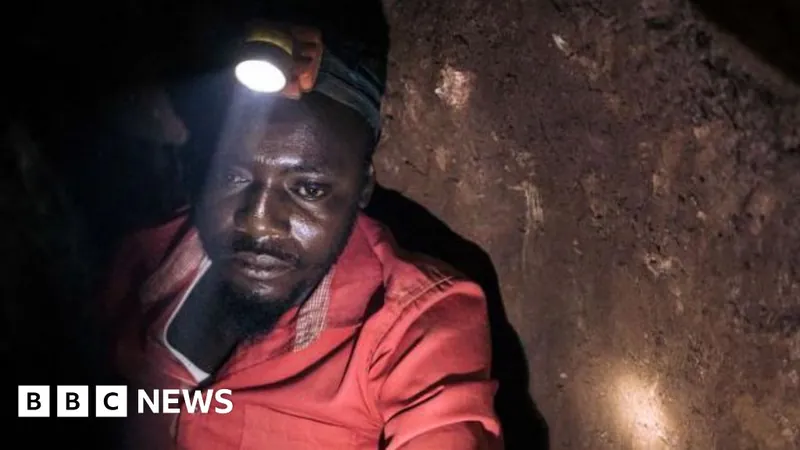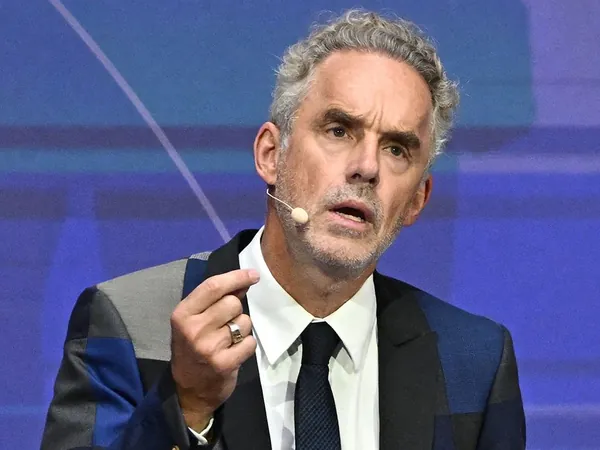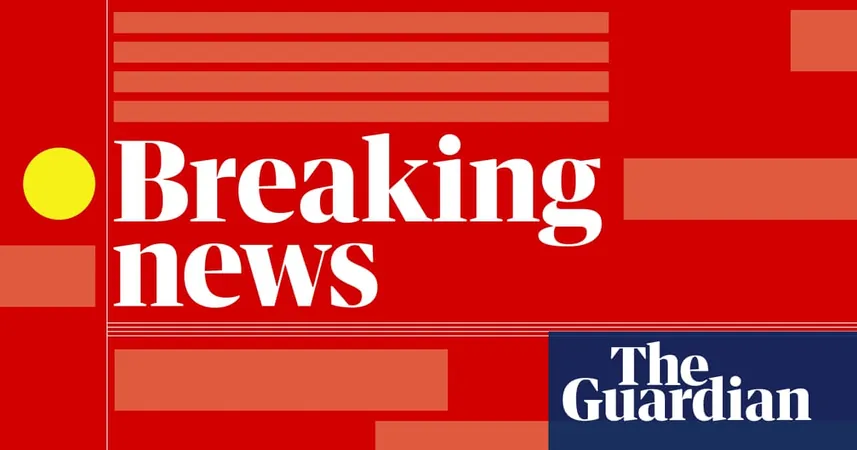
Apple Faces Legal Heat Over Conflict Minerals from DR Congo
2024-12-18
Author: Sophie
Legal Proceedings Launched Against Apple
In a groundbreaking move, the Democratic Republic of Congo (DRC) has launched criminal proceedings against Apple in both France and Belgium, accusing the tech behemoth of using conflict minerals sourced from its war-torn region. This legal action, brought forward by lawyers acting on behalf of the Congolese government, highlights the significant humanitarian concerns surrounding the mining operations in the eastern part of the DRC, which are allegedly controlled by armed groups.
Allegations of Complicity
The lawyers' allegations suggest that Apple is not merely a bystander, but rather complicit in violence perpetuated by these groups. They argue that minerals such as tin, tantalum, and tungsten sourced from conflict zones are washed through global supply chains, leading to what they label as "blood minerals." These practices reportedly fuel an ongoing cycle of violence, financing militant factions and exacerbating issues like forced child labor and environmental destruction in the region.
Apple's Response
In response, Apple has vehemently disputed these accusations, asserting its commitment to responsible sourcing. A company spokesperson stated, "As conflict in the region escalated earlier this year, we notified our suppliers that their smelters and refiners must suspend sourcing tin, tantalum, tungsten, and gold from the DRC and Rwanda." This measure was taken out of concern that the existing audit and certification systems were inadequate to meet Apple's rigorous sourcing standards.
Historical Context of Mineral Supply Crisis
The ongoing mineral supply crisis in the DRC has historical roots, going back several decades. The region is renowned for its rich mineral resources, a factor that has fueled prolonged conflict and instability. Estimates suggest that large amounts of these minerals are illicitly transported to neighboring Rwanda, further complicating the issue. Human rights organizations have long raised alarms over the intersection of mineral wealth and human suffering, asserting that the minerals in many of our devices may indeed have blood-stained origins.
Rwanda's Denial
Adding another layer to this complex narrative, Rwanda has dismissed the DRC's actions against Apple as a mere media spectacle, firmly denying any involvement in the sale of conflict minerals to the tech giant.
Looking Ahead
As the legal process unfolds, authorities in France and Belgium will determine whether there is sufficient evidence to advance these serious allegations against Apple. This situation raises pressing questions about corporate responsibility, ethical sourcing, and the length to which major tech companies must go to ensure their supply chains do not contribute to human suffering.
Conclusion
Stay tuned as this story develops, and ask yourself—are the devices we use every day built on a foundation of conflict and exploitation?









 Brasil (PT)
Brasil (PT)
 Canada (EN)
Canada (EN)
 Chile (ES)
Chile (ES)
 España (ES)
España (ES)
 France (FR)
France (FR)
 Hong Kong (EN)
Hong Kong (EN)
 Italia (IT)
Italia (IT)
 日本 (JA)
日本 (JA)
 Magyarország (HU)
Magyarország (HU)
 Norge (NO)
Norge (NO)
 Polska (PL)
Polska (PL)
 Schweiz (DE)
Schweiz (DE)
 Singapore (EN)
Singapore (EN)
 Sverige (SV)
Sverige (SV)
 Suomi (FI)
Suomi (FI)
 Türkiye (TR)
Türkiye (TR)